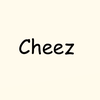資訊專欄INFORMATION COLUMN

今天心血來潮,寫了一個 Markdown 轉換器。
import os, re,webbrowser
text = """
# TextHeader
## Header1
List
- 1
- 2
- 3
> **quote**
》 quote2
## Header2
1. *斜體*
2. [@以茄之名](https://www.zhihu.com/people/e4f87c3476a926c1e2ef51b4fcd18fa3)
3、 
## Header3
`*[文章地址](https://zhuanlan.zhihu.com/p/39742445)*`
·**code1**·
- [x]是否點贊
"""
程序開頭先處理一些行內的語法,比如 code、strong、i 等,用正則直接替換:
text = re.sub(re.compile("([`·])([^`·]+)[`·]"), r"2", text)
text = re.sub(re.compile("**([^*]+)**"), r"1", text)
text = re.sub(re.compile("([^*])*([^*]+)*"), r"12", text)
接著是復雜一點的圖片和鏈接:
text = re.sub(re.compile("([^!])[([^]]+)](([^)]+))"),
r"12", text)
text = re.sub(re.compile("![([^]]*)](([^)]+))"),
r"
%s
""" % (p_html, line)
因為有序列表和無序列表的區別是頭尾的ol和ul,所以要用 list_flag 變量來判斷
elif re.match("[+-*] ", line):
if list_flag == "":
html += "處理完后處理其他的語法:
else:
if list_flag != "":
html += "
" % list_flag
list_flag = ""
if re.match("#+", line):
well = re.match("#+", line).group().count("#")
line = re.sub("#+", "", line)
html += "%s
" % (well, line, well)
elif re.match("[>》 ]", line):
line = re.sub("^s*[>》 ]", "", line)
html += "%s
" % (line)
# elif re.match("[>》 ]", line):
# line = re.sub("^s*[>》 ]", "", line)
# html += "%s
" % (line)
else:
html += line
這里我稍微修改了一點,讓 > 和 》 都可以轉換成引用,主要是切換中英文標點太難了。
然后就是添加 CSS,自己改了一點馬克飛象的進去,因為他的引用做得很漂亮:
with open("markdown.html", "w", encoding="utf-8")as f:
f.write("""